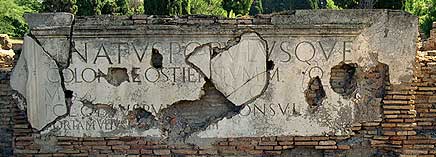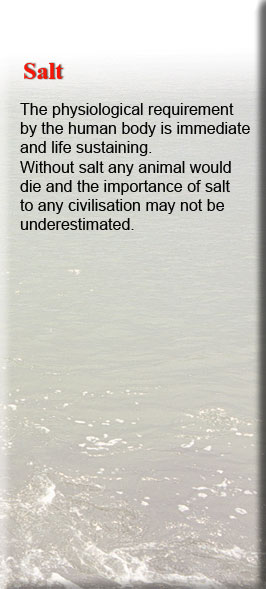At the end of the first century BC Dionysius of Halicarnassus
described the mouth of the river Tiber. For Rome the river had been
the most important overseas supply route for goods, especially grain.
Another product indissolubly connected to the river was salt.
The salt pans at the Tiber's mouth were of crucial importance for
the early inhabitants. Salt was indispensable to preserve food.
Therefore it can not be a surprise that already in an early age
a settlement originated with a well conducted salt trade.
During the eighth century BC the Greeks and Phoenicians developed
a great interest for
the rich metal supply of Etruria.
According to tradition, the early ruler Ancus Marcius, fourth
king of Rome, decided that it was time to bring the road between
Rome and Ostia under  the
jurisdiction of Rome. Round about 620 BC he reorganized the salt making
and founded the first Roman colony in the angle between the mouth
of the Tiber and the sea. He called that first dwelling after the
Latin word for "mouth", Ostia. the
jurisdiction of Rome. Round about 620 BC he reorganized the salt making
and founded the first Roman colony in the angle between the mouth
of the Tiber and the sea. He called that first dwelling after the
Latin word for "mouth", Ostia.
| 